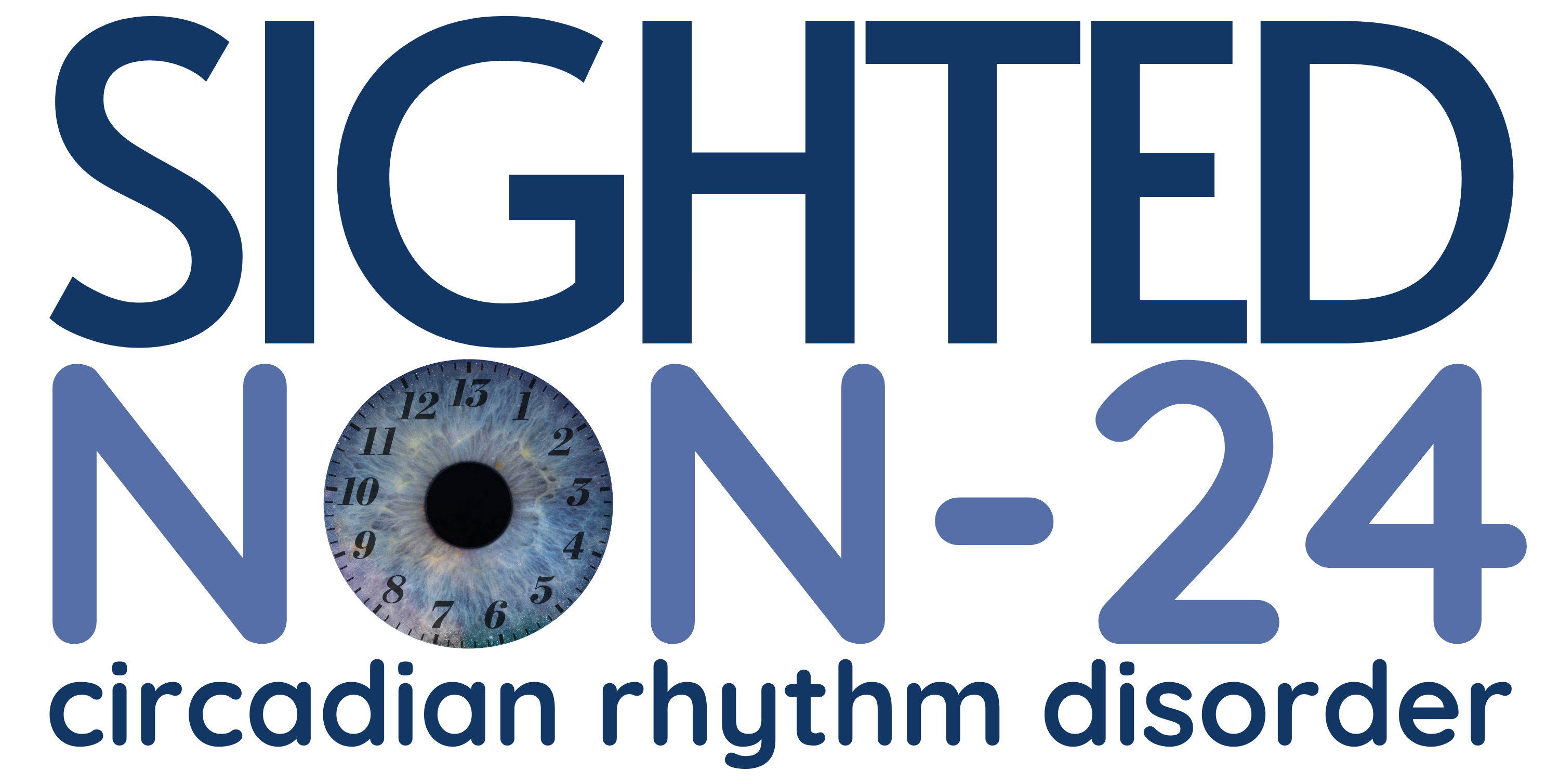Welcome
Have you ever wished for more hours in a day?
Unfortunately, it is not an improvement on the typical 24-hour day.
We know from experience. For people with Sighted Non-24-Hour Sleep-Wake Disorder, the amount of sleep we need and the time we are awake adds up to over 24-hours. Our days are longer than normal.
These longer days and nights create a forward shift in our sleep patterns—A malfunction of the circadian rhythm causes this. The circadian rhythm is our natural body clock. For typical people, their circadian rhythm is 24 hours long. But for us, it is longer (or shorter in extra-rare instances).
This means we can neither wake up nor go to sleep at the same time every day. Non-24 disrupts our ability to socialize, work normal hours, and attend scheduled appointments… among other things.

Why not just set an alarm? Sighted Non-24 is rare and not well understood by medical professionals. If people with Non-24 are forced to wake up at the same time every day to a scheduled alarm, we become sleep deprived and unable to function properly. Long-term sleep deprivation is harmful to health and leads to dangerous complications. Many Sighted Non-24 patients find they are healthiest and most productive when they let their sleep free-run (sleeping when sleepy and waking when naturally refreshed).
Who are we? We are a group of Sighted Non-24 Sleep-Wake Disorder patients dedicated to bringing awareness to Sighted Non-24. It is an isolating, debilitating, and misunderstood disorder; so, it is important we help connect our experiences with you. We are normal people with an abnormal complication in our lives.
Thank you for visiting our site!
Please consider reading about our condition on the FAQ and Resources pages or see how Sighted Non-24 patients are getting creative in our Creative Non-24 Experiences section.
To republish any of our content, please contact us.
